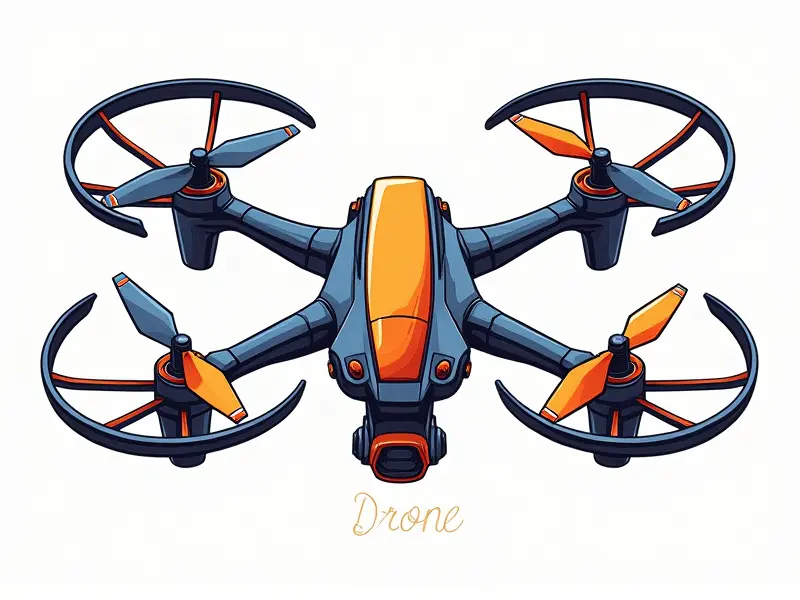Are RC helicopters safe?

Are RC Helicopters Safe to Fly?
Flying radio-controlled (RC) helicopters can be an exhilarating hobby, but safety is paramount. Many enthusiasts wonder if these miniature aircraft are safe for both the pilot and bystanders. This article delves into the various aspects of flying RC helicopters safely.
RC Helicopter Safety Tips
To ensure a fun and secure experience with your RC helicopter, follow these essential safety tips:
- Pilot Training: Enroll in training programs to understand basic flight dynamics and emergency procedures.
- Equipment Checks: Regularly inspect your equipment for wear and tear, ensuring all components are functioning correctly.
- Flight Area Selection: Choose open fields or designated flying areas away from crowds and obstacles.
Risks of Flying RC Helicopters
Flying RC helicopters comes with inherent risks. Understanding these can help you mitigate potential dangers:
- Collision Risks: RC helis are prone to crashing, which could damage property or injure people.
- Battery Safety: Lithium polymer (LiPo) batteries used in RC helis can be hazardous if mishandled.
- Electromagnetic Interference: Other electronic devices may interfere with your helicopter's control signals, causing erratic behavior.
Ensuring Safety with RC Helicopters
Maintaining safety is crucial for both beginners and experienced pilots. Here are some measures to ensure safe operation:
- Use Quality Components: Invest in reliable parts that meet industry standards.
- Follow Manufacturer Guidelines: Adhere strictly to the manufacturer's instructions for assembly, maintenance, and flight procedures.
Avoiding Accidents with RC Helicopters
To avoid accidents while flying your RC heli, consider these preventive measures:
- Weather Conditions: Avoid flying in extreme weather conditions such as strong winds or heavy rain.
- Flight Duration: Limit flight time to prevent battery depletion and overheating of components.
RC Helicopter Flight Safety
Flying RC helicopters safely involves more than just avoiding immediate hazards. Here are some additional tips:
- Flight Planning: Plan your flight path carefully to avoid obstacles and other aircraft.
- Emergency Procedures: Know how to perform emergency landings or recoveries in case of sudden issues.
RC Helicopter Safety Measures
Implementing safety measures is crucial for both the pilot and spectators. Consider these steps:
- Personal Protective Equipment (PPE): Wear eye protection to prevent injury from debris.
- Safety Nets or Bubbles: Use protective barriers around your flying area to catch falling components.
Safe Flying for RC Helicopters
To promote safe flying practices, follow these guidelines:
- Community Guidelines: Adhere to local regulations and community rules regarding flight areas.
- Educational Resources: Utilize online resources and forums for learning about best safety practices.
RC Helicopter Safety Guide
A comprehensive guide to RC helicopter safety includes:
- Safety Manuals: Read through the manuals provided by manufacturers and distributors.
- Online Training: Take advantage of online courses and tutorials for a deeper understanding of safe practices.
Beginner's Guide to RC Helicopter Safety
For beginners, here are some key safety points to remember:
- Start with Basics: Begin with smaller models and simpler controls before moving on to more complex setups.
- Practice Makes Perfect: Spend time practicing basic maneuvers in safe environments.
Common RC Helicopter Safety Myths
Dispelling common myths about RC helicopter safety is important for accurate understanding:
- Myth: All Batteries Are the Same: Not all batteries are created equal; use high-quality, reputable brands.
- Myth: No Training Needed: Proper training and education significantly reduce risks associated with RC helicopter flying.
Conclusion
Flying RC helicopters can be a thrilling hobby when approached with the right mindset towards safety. By adhering to best practices, utilizing quality equipment, and staying informed about potential hazards, you can enjoy this pastime safely. Always prioritize safety to ensure enjoyable and incident-free flights.

